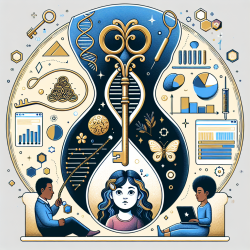Understanding Racial Disparities in Women's Health: Insights from the SWAN Study
The Study of Women’s Health Across the Nation (SWAN) has unveiled critical insights into the disparities in reproductive aging and midlife health between Black and White women. This longitudinal study, spanning over 25 years, highlights significant differences in health outcomes that practitioners must consider to improve care and address systemic issues.
Key Findings from the SWAN Study
SWAN's findings reveal stark disparities in menopause symptoms, sleep, mental health, and cardiometabolic health between Black and White women. Black women experience more severe and persistent vasomotor symptoms (VMS), poorer sleep quality, and higher incidences of depression and chronic diseases such as diabetes and hypertension.
Structural Racism: An Underlying Factor
Although SWAN did not explicitly measure structural racism, the study suggests that systemic inequities contribute significantly to these health disparities. Black women in the study, who grew up during the Jim Crow era, faced socio-economic challenges that likely impact their health outcomes today.
Implications for Practitioners
Practitioners must be aware of these disparities and consider them when developing treatment plans. Here are some recommendations:
- Consider socio-economic factors and potential discrimination when assessing patient history.
- Advocate for policies that address systemic inequities in healthcare access and treatment.
- Encourage further research into the impact of structural racism on health outcomes.
Encouraging Further Research
The SWAN study serves as a springboard for further research into racial disparities in health. By examining socio-economic factors and discrimination, researchers can gain a deeper understanding of how structural racism impacts health outcomes and work towards solutions.
To read the original research paper, please follow this link: Disparities in Reproductive Aging and Midlife Health between Black and White women: The Study of Women’s Health Across the Nation (SWAN).










